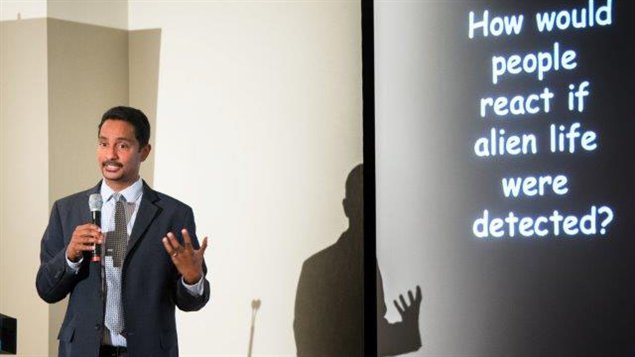Two years ago, the 21 universities in Canada’s central province of Ontario came up with an idea to make the public more aware of the research their universities were doing, and how that research benefitted them.
The concept is called “Research Matters.” Bonnie M. Patterson, is the President and CEO of the Council of Ontario Universities (COU), which organizes the annual series of initiatives.
ListenUniversities are often perceived to be “ivory towers” where high level ideas are taught and discussed, and sometimes equally high level research is carried out, but not much of which is understood or has any bearing on the day to day lives of the general public.

The COU realized that both the amount and nature of the university research was something the public should know about, and would also appreciate knowing about.
They came up with an idea to make a better connection between the somewhat esoteric research done at Ontario institutions and the communities around them.
In the first year, a series of public talks was organized with experts from across many disciplines who talked about their various fields of research and how it is connected to what life would be like in the year 2030, and how the work they were doing now would contribute to life in the future.
The public was then invited to ask questions of the researchers. The travelling speakers’ series proved to be hugely popular. The event series is back this year with researchers currently debating the question “what matters now,” and again responding to questions posed by the public about what they are experiencing in their lives today.

Other novel methods of explaining research in layman’s terms and how the research carried out at Ontario universities has a direct bearing on people’s lives have been developed this year as well. They include “Pop-up Curiosity Shops,” which are temporary booths designed to allow the public to ask university researchers any question at all, whether in environmental research, new engineering innovations, medical discoveries, and so on
They ask their questions by video and then an Ontario university researcher responds with videos posted on the Research Matters website.
Another innovation is the creation of a “Curiosity Cruiser,” a vehicle driven by university student research ambassadors who will travel to malls and galleries around Ontario this summer to encourage people to be filmed guessing the purpose of a variety of obscure research related objects. The correct answers and a full explanation about the particular research tool will be posted later on the website.
With almost three million people either attending the public speakers’ events, visiting the Research Matters website or learning about it through media reports, the public awareness initiative has been a huge success.
Bonnie Patterson says other university organizations are looking at the Ontario initiative with an eye to either developing, modifying, or expanding similar programs.
She says Research Matters is creating a much greater awareness of how universities contribute to the scientific, social, cultural and economic well being of the society around them.







For reasons beyond our control, and for an undetermined period of time, our comment section is now closed. However, our social networks remain open to your contributions.